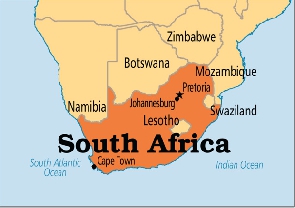 Mortuaries are required to cover bodies with plastic bags to prevent the spread of the coronavirus
Mortuaries are required to cover bodies with plastic bags to prevent the spread of the coronavirus
Health department in the Eastern Cape Province, South Africa, has issued a warning to communities about the dangers of exhuming bodies of people who died from COVID-19, saying it might spread the virus.
Departmental spokesperson, Sizwe Kupelo, said the department became aware that some families in the Ngcobo area were digging up graves of their loved ones who died from COVID-19 to remove a plastic that is used to cover their bodies.
He said the explanation behind the digging up was that families "were haunted by the dreams of their loved ones who said they were suffocating due to the plastics used."
"The plastic is used to prevent the spread of the virus and the contamination of the environment including the rivers," he noted, adding that exhuming bodies without following proper procedures was illegal.
"You are putting people involved in the exhumation of being infected with COVID-19 including the community. You are spreading the virus unwittingly," he told Xinhua on Monday.
Since the start of the pandemic, mortuaries are required to cover bodies with plastic bags to prevent the spread of the Coronavirus which has killed over 33,000 people so far in South Africa.
Kupelo said families should familiarise themselves with procedures required during exhumation.
"Exhumation has to be authorised by a magistrate, the process has to be done by a funeral parlor in the presence of a health environmental officer as well as police. Proper protective clothing have to be worn," he said.
He said one could face a five-year jail term for failing to follow the regulations associated with exhumation.
Xinhua recently spoke to a funeral parlor which explained that they were expected to comply with COVID-19 regulation and cover bodies before burial with plastics.
Kupelo added that the department would embark on a awareness campaign to educate communities about the pitfalls of doing this.